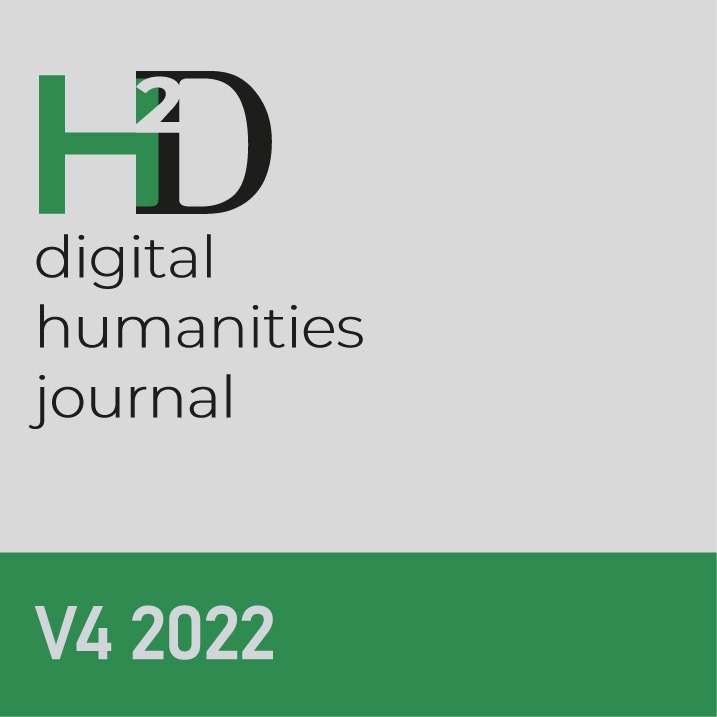Memory 2.0 of the 21st century pianist: Possibility and tools
DOI:
https://doi.org/10.21814/h2d.4076Keywords:
memory, piano, pianist, memory 2.0, tablet, 21st centuryAbstract
One of the difficulties that has always affected the world of the soloist pianist is memory. There are many studies and theories about memory and the conclusion is that, in fact, memory influences performance (Palmer, 2012). From great pianists to piano students, this practice can be a cause of stress and embarrassing situations in concert contexts. For this reason, many musicians have written about the techniques of memorization and about the best way to face this situation. This clearly implies more work and can be limiting to the pianist's individual repertoire. So, can new technologies address this problem? Can we have the same result, with the necessary freedom on stage, to play more relaxed and have a wider repertoire available? This article will talk about the memory related to the pianist in his soloist aspect (therefore, aspects related to accompanying pianists or in the context of chamber music will not be addressed) and I will present the history of memorization, ever since this need arose all the way to present day, the 21st century. We will get to know what technologies are currently available and how to use them to support the pianist's memory. We shall call it: memory 2.0.
Downloads
References
Agrillo, C. (2013). L'esperienza concertistica e i processi neurocognitivi. Carocci editore.
Bache, C. (2013). Brother musicians: Reminiscences of Edward and Walter Bache. Cambridge University Press. DOI: https://doi.org/10.1017/CBO9781139565240
Baddeley, A. (1992). La memória umana. Il Mulino.
Busoni, F. (13 junho 2020). Del suonare a memoria. Ferruccio Busoni Website. https://www.rodoni.ch/busoni/saggi/suonarememoria.html
Cappelletto, S. (13 junho 2020). Suonare a memória suonare con l’anima. La Stampa. https://www.lastampa.it/cultura/2016/06/16/news/suonare-a-memoria-suonare-con-l-anima-1.34984420
Chaffin, R., Logan, R. T., & Begosh, T. K. (2008). Performing from memory. In S. Hallam, I. Cross, & M. Thaut (Eds.), Oxford Handbook of Music Psychology (1st ed., pp. 352–363). Oxford University Press. https://doi.org/10.1093/oxfordhb/9780199298457.013.0033 DOI: https://doi.org/10.1093/oxfordhb/9780199298457.013.0033
Coffman, D. D. (1990). Effects of mental practice, physical practice, and knowledge of results in piano performance. Journal of Research in Music Education, 38, 187–196. https://doi.org/10.2307/3345182 DOI: https://doi.org/10.2307/3345182
De Vincenti, G. (2020). Luigi Gaetano Gullì (1859-1918) [revisão de literatura].
EDT. (26 junho 2020). Suonare a memoria. Tutto o quasi... EDT. https://www.edt.it/suonare-a-memória-tutto-o-quasi
Eigeldinger, J. J. (2010). Chopin visto dai suoi allievi. Astrolabio.
Euronews. (20 junho 2020). Euronews. Obtido de "Musica Piano", la fine degli spartiti di carta: https://web.archive.org/web/20211208211235/https://it.euronews.com/2015/10/27/musica-piano-la-fine-degli-spartiti-di-carta
Gallo, C. (2013). La magia di Apple. L'azienda che crea i tuoi sogni di domani. Sperling & Kupfer.
Geeves, A., Christensen, W., Sutton, J., & Macllwain, D. (2008). Practicing perfection: Memory and piano performance. Empirical Musicology Review, 164–167. https://doi.org/10.18061/1811/34109 DOI: https://doi.org/10.18061/1811/34109
Hamilton, K. (2007). After the Golden Age: Romantic pianism and modern performance. Oxford University Press. DOI: https://doi.org/10.1093/acprof:oso/9780195178265.001.0001
Hughes, E. (1915). Musical memory in piano playing and piano study. The Musical Quarterly, 592–603. https://doi.org/10.1093/mq/I.4.592 DOI: https://doi.org/10.1093/mq/I.4.592
Klöpper, R. (2006). Training mentale per il musicista. Edizioni Curci. Libero. (2 de junho de 2020). Tecnologia. Libero. https://tecnologia.libero.it/cose-e-come-funziona-la-tecnologia-e-ink-linchiostro-elettronico-12952
Mitchell, M. (2002). Vladimir de Pachmann: A piano virtuoso's life and art. Indiana University Press.
Mazzucchelli, C. (2013). Tablet: trasformazioni cognitive e socio-culturali. Delos Digital srl - Edição Kindle.
Palmer, C. (2012). The nature of memory for music performance skills. In E. Altenmüller, M. Wiesendanger, & J. Kesselring (Eds.), Music, motor control and the brain (pp. 39–53). Oxford Scholarship Online. https://doi.org/10.1093/acprof:oso/9780199298723.003.0003 DOI: https://doi.org/10.1093/acprof:oso/9780199298723.003.0003
Rosen, C. (2008). Piano Notes - Il pianista e il suo mondo. EDT srl.
Scheffer, F. (13 junho 2020). When Maria João Pires learned the wrong piano concerto, but something incredible happened…. Classic fm. https://www.classicfm.com/artists/maria-joao-pires/guides/wrong-piano-concerto/
Shinn, F. G. (1898). The memorizing of piano music for performance. In Proceedings of the Musical Association , 1898 - 1899, 25th Sess. (1898 - 1899) (pp. 1–25). Taylor & Francis, Ltd. on behalf of the Royal Musical Association. DOI: https://doi.org/10.1093/jrma/25.1.1
Downloads
Published
How to Cite
Issue
Section
License
Copyright (c) 2022 Giosuè De Vincenti

This work is licensed under a Creative Commons Attribution 4.0 International License.






